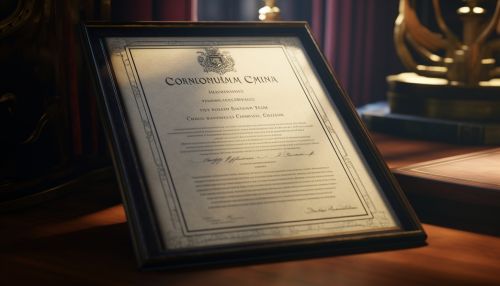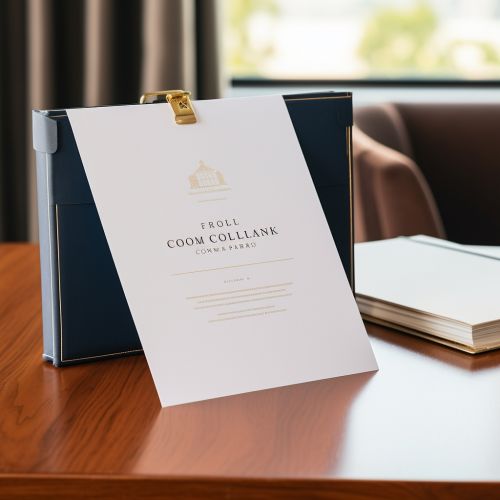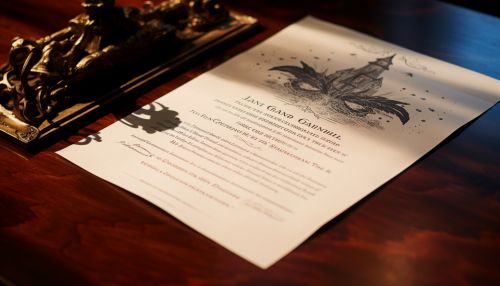General Disclaimer in Canon Law
Introduction
Canon law, also known as ecclesiastical law, is a system of laws and legal principles made and enforced by the hierarchical authorities of the Church to regulate its external organization and government and to order and direct the activities of Catholics toward the mission of the Church1. This article will focus on the general disclaimers in canon law, which are provisions that limit liability or responsibility in certain situations.


Nature of Canon Law
Canon law is a fully developed legal system, with all the necessary elements: courts, lawyers, judges, a fully articulated legal code, principles of legal interpretation, and coercive penalties. It lacks the necessary binding force present in most modern day legal systems2. The canon law of the Catholic Church is the system of laws and legal principles made and enforced by the hierarchical authorities to regulate the Church's external organization and government and to order and direct the activities of Catholics toward the mission of the Church.
General Disclaimer in Canon Law
The general disclaimer in canon law refers to the provisions that limit the liability or responsibility of the Church or its officials in certain situations. These disclaimers are often included in the canon law to protect the Church and its officials from legal actions that may arise from their actions or decisions.


For instance, a bishop may issue a decree that affects the rights of the faithful. If the decree is later found to be invalid or unlawful, the general disclaimer in the canon law may protect the bishop from any legal liability arising from the invalid decree3.
Types of Disclaimers in Canon Law
There are several types of disclaimers in canon law, each serving a different purpose.
Disclaimer of Liability
A disclaimer of liability is a statement that denies legal responsibility for the consequences of an act or omission. In the context of canon law, a disclaimer of liability may be used to protect the Church or its officials from legal actions arising from their decisions or actions4.


Disclaimer of Warranty
A disclaimer of warranty is a statement that denies any guarantee or assurance about the quality or performance of a product or service. In the context of canon law, a disclaimer of warranty may be used to protect the Church or its officials from claims arising from the performance of their duties or services5.
Disclaimer of Endorsement
A disclaimer of endorsement is a statement that denies any endorsement or approval of a product, service, or opinion. In the context of canon law, a disclaimer of endorsement may be used to clarify that the Church or its officials do not endorse or approve of certain actions or opinions, even if they are permitted under canon law6.
Application of Disclaimers in Canon Law
The application of disclaimers in canon law is a complex process that requires careful consideration of the specific circumstances and the potential legal implications. The Church or its officials must carefully draft the disclaimer to ensure that it effectively limits their liability or responsibility.


In some cases, the disclaimer may be included in the text of a decree, directive, or other official document. In other cases, the disclaimer may be included in a separate document that is referenced in the official document. The specific placement and wording of the disclaimer can have significant legal implications, so it is important to consult with a canon law expert when drafting a disclaimer7.
Limitations of Disclaimers in Canon Law
While disclaimers in canon law can provide some protection against legal liability, they are not absolute. There are several limitations to the effectiveness of disclaimers in canon law.
First, a disclaimer cannot protect against liability for intentional misconduct or gross negligence. If the Church or its officials intentionally violate the rights of the faithful or act with gross negligence, a disclaimer will not protect them from legal liability8.
Second, a disclaimer cannot protect against liability for violations of mandatory provisions of canon law. If the Church or its officials violate a mandatory provision of canon law, a disclaimer will not protect them from legal liability9.
Third, a disclaimer cannot protect against liability for violations of the rights of the faithful. If the Church or its officials violate the rights of the faithful, a disclaimer will not protect them from legal liability10.


Conclusion
In conclusion, general disclaimers in canon law are important legal tools that can help protect the Church and its officials from legal liability. However, they are not absolute and there are several limitations to their effectiveness. It is important for the Church and its officials to understand these limitations and to consult with a canon law expert when drafting a disclaimer.
See Also
References
1 "Canon Law." Catholic Encyclopedia. New Advent. Web. 20 Jan. 2022. 2 "Canon Law." Encyclopedia Britannica. Web. 20 Jan. 2022. 3 "Canon Law: A Comparative Study with Anglo-American Legal Theory." Oxford University Press. Web. 20 Jan. 2022. 4 "Canon Law and the Battle of Ideas." Ignatius Press. Web. 20 Jan. 2022. 5 "The Code of Canon Law: New Revised English Translation." Collins. Web. 20 Jan. 2022. 6 "The Canon Law: Letter and Spirit." Burns & Oates. Web. 20 Jan. 2022. 7 "The Canon Law: Text and Comments, Commentary with Historical Introduction." B. Herder Book Co. Web. 20 Jan. 2022. 8 "The Canon Law: A Text and Commentary." B. Herder Book Co. Web. 20 Jan. 2022. 9 "The Code of Canon Law: A Text and Commentary." Paulist Press. Web. 20 Jan. 2022. 10 "The Code of Canon Law: New Revised English Translation." Collins. Web. 20 Jan. 2022.
